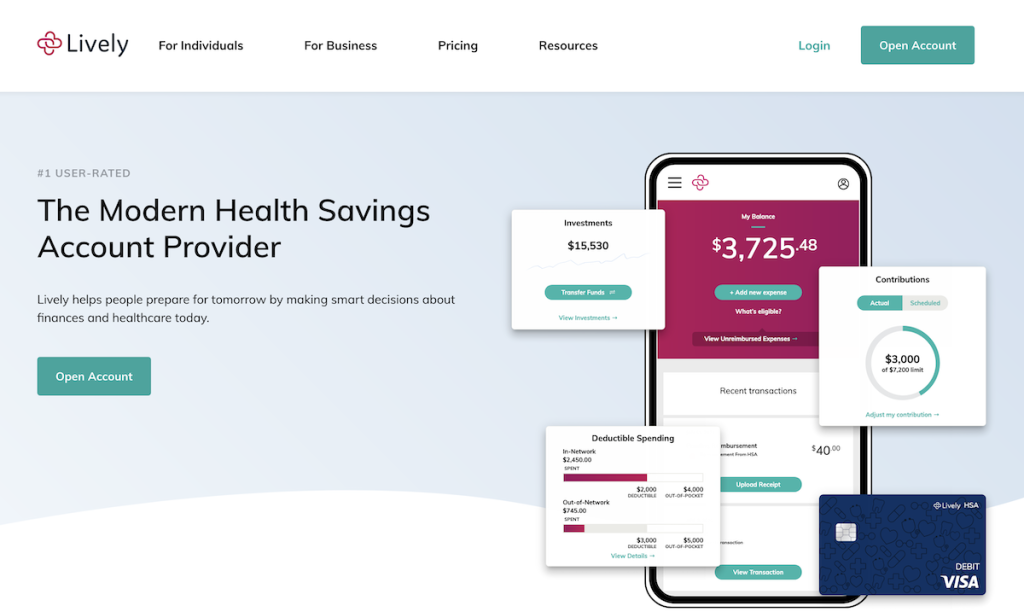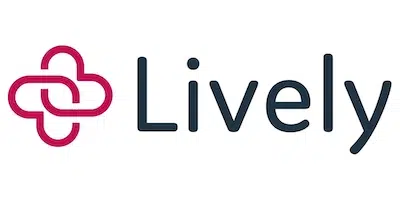- Fee-free HSA provider for individuals
- Allows you to invest 100% of your HSA balance at Schwab
- One of the top HSA providers from a cost and ease of use perspective
With so many terms out there regarding health insurance, it can be difficult to puzzle through all the acronyms. If you’re not sure what an HSA account is or if you should open one, you’re not alone. There are many benefits to opening this type of account, but it can be hard to access them all if you don’t know what you’re investing in.
This guide will introduce you to the basics of HSA accounts and what you should look for when shopping for one. As HSA accounts grow in popularity, there are more to choose from. This can make it easier to get a better deal but also harder when it comes to knowing which provider to go with. That’s why we’ve included a list of 10 of the best HSA accounts you can take advantage of. You’ll see a condensed version of their features, in addition to what fees and perks you can expect.
Taking care of your health can sometimes require a lot of effort, but choosing an HSA account that rewards you makes it that much easier. Are you ready to see how HSA accounts can help you accomplish your health goals? Let’s get started!
What is an HSA
A health savings account, or HSA, allows you to set aside pre-tax dollars to spend on medical expenses exclusively. You can enroll in an HSA through your employer or individually. If you enroll through your employer, they may pay for the monthly account fee associated with an HSA.
You are eligible for opening an HSA account if you have a qualifying health insurance plan, namely one that comes with a high deductible. For 2023, individuals who have a deductible of $1,500 or more and families with a deductible of $3,000 or more are eligible. Additionally, you must not be enrolled in Medicare or claimed as a dependent.
HSA contributions are limited each year. In 2023, you can contribute up to $3,850 as an individual or $7,750 as a family. These dollars are not taxed so long as they stay in the HSA account. If you do remove them from the account for non-medical expenses, you will pay a 20% penalty tax. With that said, you can cash out your HSA account after you turn 65 without any tax penalties, although the funds will still be reported under regular income on your taxes for that year.
What to Look for in an HSA Account
HSA accounts are built to provide you with tax benefits as well as a potential contribution to your retirement once you turn 65. However, there are certain characteristics you’ll want to consider before choosing an HSA account to start contributing to:
- Little to no account fees
- Mobile app
- Online bill pay
- Debit card to withdraw funds from the account directly
- Fees
- Investment options
- Interest on savings balances
- Superb customer service
The type of features that will benefit you the most depends on how you will use the account. Sometimes it can be easier to find an HSA account that fits your health and financial goals by listing out which features you have to have, which ones you want, and which you can live without.
10 Best HSA Accounts
These HSA accounts can help you tackle your medical expenses with a plan. Which one will you choose?
1. Lively

“Free” is one of the best ways to describe the benefits you’ll receive when you open a Lively HSA account. You won’t have to pay anything to open an account, whether you’re registering as an individual or a family. Sign-up takes little more than five minutes and all statements from Lively are paperless.
If you’re not sure if you can open an HSA account, take Lively’s free quiz. Then, open an account to enjoy zero hidden fees, no minimum balance requirements, fee-free transfers and rollovers, and an intuitive mobile app. You’ll have access to an easy-to-use dashboard that keeps everything organized, along with a free debit card you can use to pay medical bills straight from your new account.
When it comes to interest rates, Lively offers an entry-level 0.01% APY with the potential for up to 0.1% APY for balances of $10,000 or more through Choice Financial. All funds are FDIC-insured up to $250,000, complete with bank-level security that keeps your money safe. You can easily set up recurring contributions or simply add to your new HSA one contribution at a time.
Lively also offers the chance to open a Schwab Health Savings Brokerage Account or access an HSA Guided Portfolio. These accounts will show up on your Lively dashboard if you do choose to invest in them, making it easy to monitor your investments from one place. If you ever have any questions, simply connect with Lively through phone, email, or live chat.
- Fee-free HSA provider for individuals
- Allows you to invest 100% of your HSA balance at Schwab
- One of the top HSA providers from a cost and ease of use perspective
2. Fidelity
While Lively’s free services are great for individuals who want a more generalized approach, Fidelity can provide some of the best investment potential for those opening a new HSA account. Like Lively, Fidelity doesn’t require a minimum deposit or charge account management fees and offers a fee-free debit card to help you keep your health expenses separate.
After opening an account online in just a few minutes, you can easily start investing with Fidelity. You’ll have the option to choose from mutual funds and index funds, which are great for beginner investors. These low-cost investments include well-known companies such as JPMorgan and BlackRock.
Fidelity also offers fractional shares. In addition, you may be eligible for a Fidelity Health Savings Fund (FHLSX) and Fidelity Health Savings Index Fund (FHSNX), depending on your circumstances.
3. Bank of America
If you already have a Bank of America checking account, it can make total sense to open an HSA account with them as well. In fact, you’ll get the same exceptional customer service you do as an account holder with 24/7 phone and live chat support. You’ll also have plenty of guidance and education resources available to you as well.
There are no transaction fees associated with the contributions made to a Bank of America HSA account. Plus, you’ll have access to a Visa debit card that makes it easy to pay for medical expenses as they arise. There’s even a savings calculator that can help you plan for the future. You can earn up to 0.07% APY on your savings with a Bank of America HSA account.
In addition, Bank of America also offers several investment options to HSA account holders. You’ll have many mutual funds from Vanguard, Merrill Lynch, and Blackrock to choose from. You’ll need at least $1,000 in your account to start investing. If your employer doesn’t cover the $2.50 monthly account fee, that will be your responsibility as well.
4. HealthEquity
When it comes to educational resources, HealthEquity reigns supreme. This HSA account provider provides both webinars and video tutorials you can use to learn more about investing with your HSA account. HealthEquity doesn’t charge any account management fees or maintain any minimum investment thresholds. Like many of the other HSA accounts on our list, you’ll receive a free debit card as well.
If you plan on investing in Vanguard fund options, you pay an underlying fee of 0.15% as well as an annual investment fee of 0.25%. You can keep an eye on your investments via the mobile app and contact HealthEquity customer service through their 24/7 live online support.
Families looking for an HSA account solution should check out The HSA Authority. This HSA account provider offers online bill pay, text banking, and mobile deposit. There is no account minimum and you can easily open an account online.
The HSA Authority makes it easy for parents to see where their money is going when it comes to medical expenses. You can easily share your account access with your spouse to manage your funds more efficiently. Plus, the HSA account comes with a free Visa debit card that makes purchases easy to separate.
Though funds earn a nominal interest rate, you can invest in mutual funds through Devenir. The expense ratios for these investments vary but you will also pay a $36 fee annually for investment oversight.
6. Further
Employers who want to link HSA accounts to existing medical products and services may find Further to be the best option. This provider offers a streamlined approach with mobile compatibility to bring your employees a variety of health account management options.
Further’s monthly fee varies from $1-$4. With a Further account, you can oversee different employee reimbursement and savings accounts from one place. Employees can take advantage of interest rates up to 0.7%. Once their accounts reach $1,000 or more, they can invest with Charles Schwab. Investments are subject to underlying fees.
7. DCU Credit Union
There are no monthly fees or a minimum initial deposit required for DCU Credit Union HSA accounts. This free digital banking provider also offers a debit card with each HSA account, along with unlimited check writing.
You can earn up to 0.2% APY on balances of up to $1,000 or more with DCU Credit Union. As your savings increase, you can also take advantage of higher rates. Even checking account rates, set at 0.1%, are enough to make DCU Credit Union a popular choice for HSA accounts.
8. HealthSavings Administrators
Opening an HSA account with HealthSavings Administrators brings you plenty of benefits. In fact, you can choose from a variety of investment options, such as Vanguard funds. It’s true that HealthSavings Administrators does charge higher fees than most of the HSA account providers on our list. For example, you’ll pay a $45 yearly administrative fee, along with a fee of $0.625 per $1,000 per quarter. All the same, if you’re looking for particular investment options, HealthSavings Administrators could be the best bet.
9. Affinity Federal Credit Union
Fund your new Affinity Federal Credit Union account with direct deposits and take advantage of 0.25% APY. You don’t have to deposit a specific amount and you won’t pay any HSA fees with Affinity Federal Credit Union. Plus, you can get a free debit card just by signing up.
Although you can’t write checks with your new HSA account from Affinity, you will be able to set up as many HSAs as you’d like. At this time, HSA accounts from Affinity Federal Credit Union are limited to residents of New Jersey and Connecticut.
10. Northern Bank & Trust Company
With just $25 in your pocket, you can open an HSA account with Northern Bank & Trust Company. You won’t pay any monthly service fees, and once you deposit $25, you don’t have to maintain a minimum balance after that. However, you will have to pay $25 to close your account when the time comes.
Northern Bank & Trust Company pays 0.02% on balances less than $5,000. If you have a balance above $25,000, you’ll get paid up to 0.2% in interest. You’ll need at least $2,000 to invest in mutual funds, but Northern Bank & Trust does give you a Mastercard debit card and the ability to write checks from your HSA account.
HSAs vs. FSAs
You might have heard about FSAs or flexible spending accounts in discussions concerning your healthcare. These types of supplemental medical spending accounts are similar to HSAs in that you fund them with pre-tax dollars to use toward your medical expenses. However, you will have to use the funds within your FSA before the end of the year. These funds do not roll over.
Contribution limits for FSAs are set at $2,850 for 2022. It is often common practice to fund FSAs through voluntary contributions each month. Employers may also contribute. In the event you do not use your funds by the end of the year and/or leave your employer, they will receive the funds instead. This is not the case with HSAs, which travel with you when you leave an employer.
You do not need a high-deductible health plan to be eligible for an FSA. As long as you have some kind of health plan and are not self-employed, you can open an FSA.
FAQs
As long as you have a qualifying health insurance plan, you can open an HSA account. You’ll need a deductible that’s at least $1,500 if you are insured as an individual, or $3,000 if you ensure your entire family.
Only medical expenses are covered by HSA accounts. However, as long as those medical expenses qualify, you can reimburse them out of your HSA at any time.
If you don’t draw from your HSA balance frequently, you might consider investing it. However, if you plan on drawing from it and investing at the same time, you should set up a system to avoid overdrawing your account.
Plan Ahead for a Healthy Future
We hope you’ve found this article on health savings accounts (HSAs) useful in your journey to support your overall health. It can be hard to find ways to save money when it comes to medical expenses, but HSAs can help you set and achieve that goal with greater ease. Plus, when you know how an HSA works, you can leverage it to pay less in taxes and put more money back in your pocket. So, how will you invest the remaining balance in your future?









